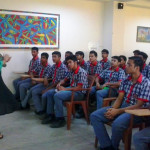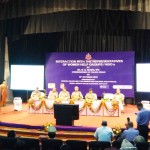Centre for Social Research along with Nanak Pura Police Station conducted a Gender Sensitization Training with students of South Delhi Public School in Defence Colony, Delhi on 5th October, 2015. The training had over 250 students in attendance starting from class IX to class XII. The training was facilitated by Ms. Pratishtha Arora and Ms. Debarati Sarkar from CSR. The Delhi Police staff also supported during the training.
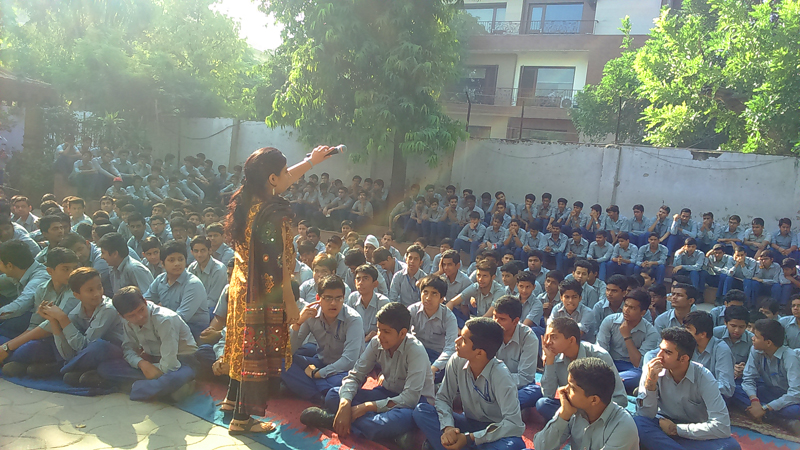

The first session was a brief introduction of the trainer and the organization, Centre for Social Research. In the introduction she explained the importance of the gender sensitization training which is the practical tool for analysing gender relations and provides adequate information regarding major factors that influence and are responsible for maintaining or change the structure of gender relations. The motive of the training was to create awareness among the young children about basic issues of gender, sex, gender equality and mutual respect. Thus, gender sensitizing is about changing behavior and instilling empathy into the views that we hold about our own and the other gender.
Next, there was a discussion about the gender-sex twofold concepts. The students did not know about the difference between gender and sex. Basically, they confused about the two terms gender and sex. Ms. Pratishtha then explained that gender is used to describe those characteristics of men and women which are socially and culturally determined, in contrast sex is a biologically determination.
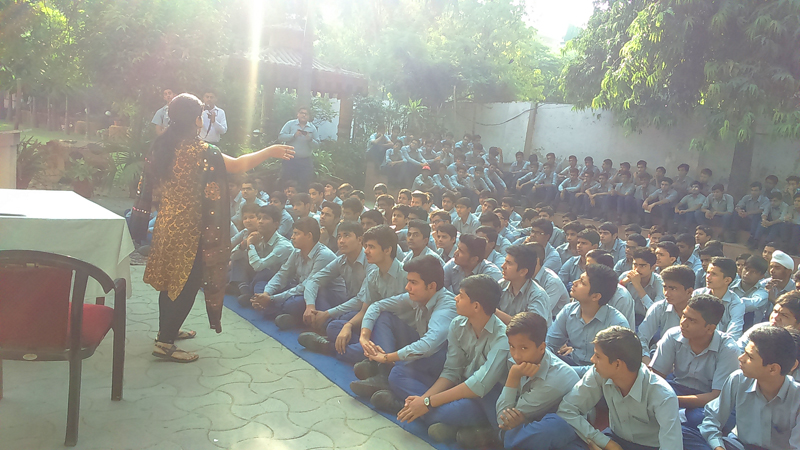

Subsequently another session dealt with the traditional and current stereotype tend to assign women’s role in society or mainly prejudiced notions of gender-based roles. Generally, women carried out to daily household activities such as food processing and preparation, washing, cleaning etc. Traditionally, it shows that the tendency to view men’s participation in housework and child-rearing as unmanly. The disparity between a man and woman begins from their birth, i.e. blue color is for boys and pink is for girls, boys are given gun and cars to play where as girls can play with doll. The participants were then informed that women are named Komal, Shushila as they consider being weak, not bold, emotional and soft hearted. On the other hand, boys are named on the basis on strength and power. All these reflects only gender norms or our perception. Then she carried out her discussion with the example like, women give birth that is her biological phenomenon but child rearing cannot be only within women’s domain. However, men also play a significant role.
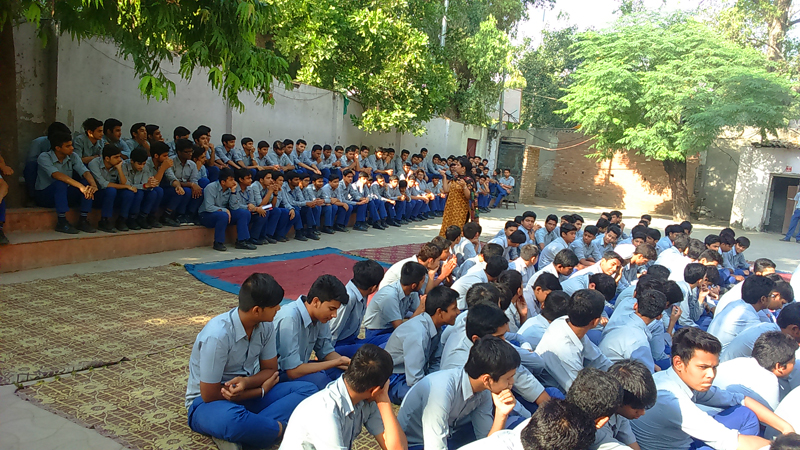

Then she focused on the attendance of gender stereotype in the mass media with examples like, men advertise motor bicycle as a lead role whereas, women are presented as back sitter. Why it is so? To given this question students respond that because of ‘attractive mode’. Another example like, in the Johnson Baby soap advertisement women portrayed as to attach with her child. Students responded that mother gives birth to a child that’s the reason. These stereotypes activities influence masculinity. Hence, there is needed to break down these stereotypes.
The next session was on the concept of “patriarchy”. The facilitator tried to focus that existing sex-role differentiation is the product of a patriarchal society based on male dominance. In that system, males are socialized into patriarchal masculinity to become men, and females are socialized into patriarchal femininity to become women. The participants further asked about why the girls are not allowed to stay outside from the home. Girl is not feels safe and secure in outside. The facilitators asked them do respect to each and everyone on the ground of humanity and do not perceive women as an ‘object’. Further, she highlighted on gender equality. She emulated the case of school principal because the school was headed by female principal. Thus, in more recent times women are holding more and more powerful positions.
The last session dealt with the concept of power. Power sets the agenda for patriarchy. The participants respond power means ‘iron man’. Thus, it implies masculinity. She explained society in which both men and women, as equal members, have the opportunity to participate in all kinds of social activities at will, equally enjoy political, economical and cultural benefits, and share responsibilities.
The training ended with a feedback where the students talked about how they want to make a change in their surroundings.
Discuss this article on Facebook



